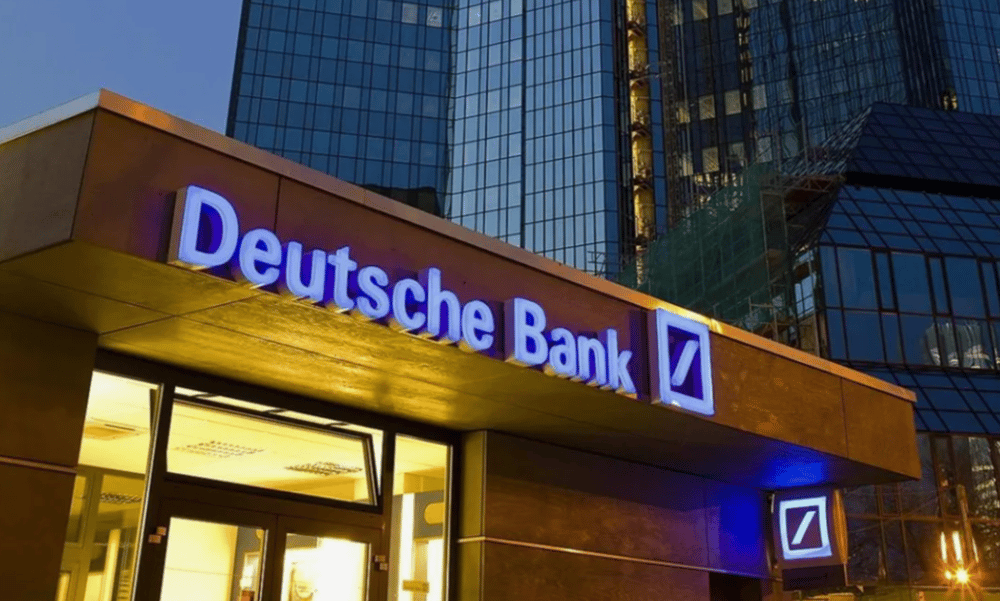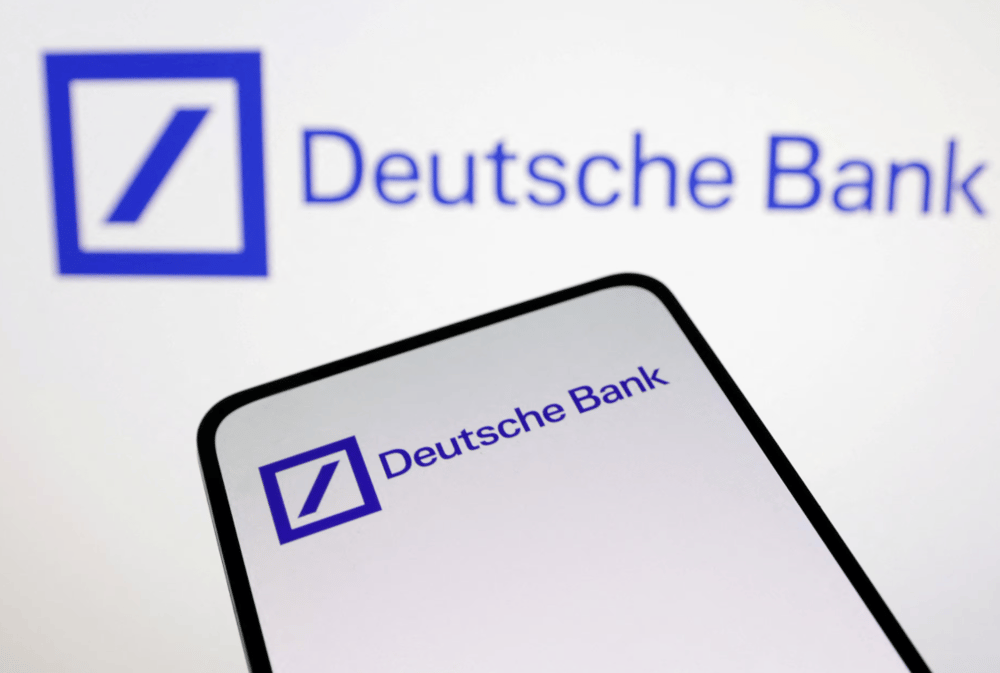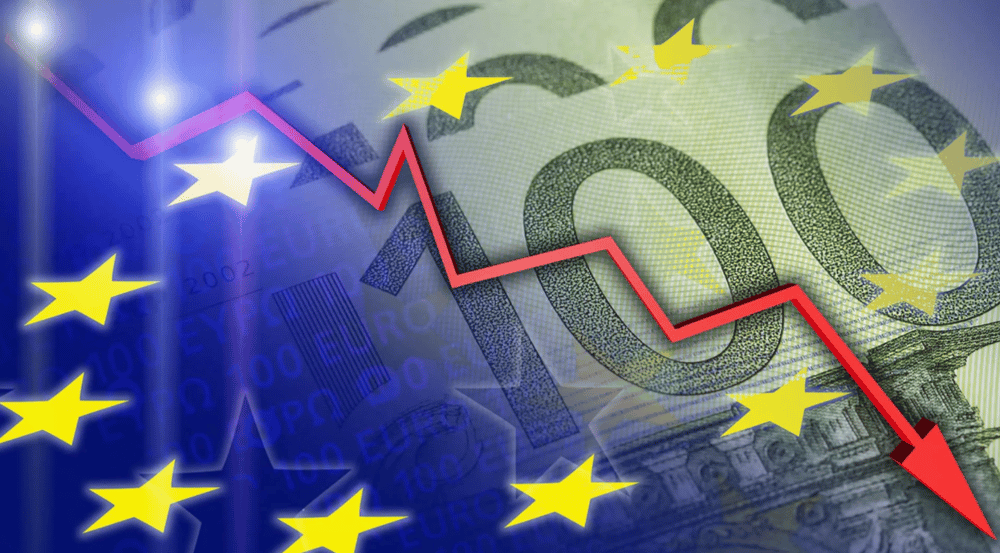Deutsche Bank Beats Expectations in Q1 as Fixed-Income Trading Surges Amid Market Volatility
Deutsche Bank $DB, Germany’s largest lender, reported a robust 39% year-on-year jump in first-quarter net profit, reaching €1.78 billion ($2.03 billion). This outperformance was driven primarily by a sharp uptick in its investment banking division, where bond and currency trading revenue surged amid heightened global market volatility.
The bank’s strong results came despite the financial drag from a leveraged finance write-down and increased reserves set aside to cushion against potential risks linked to geopolitical and tariff-related developments.
Fixed-Income Momentum Powers the Upside
The standout performer in Deutsche Bank’s Q1 report was its fixed-income, currency, and commodities (FICC) trading desk. Benefiting from fluctuating interest rates and sustained volatility in currency markets, the unit delivered a notable boost to the group’s overall revenue, reaffirming its role as a cornerstone of the bank's strategic pivot toward high-margin institutional services.
These gains allowed Deutsche Bank to outperform analyst expectations, which had been set at €1.64 billion for net profit. The results suggest the bank’s restructuring efforts over recent years are yielding tangible improvements in profitability and operational resilience.

What’s Driving the Performance
Bond and FX Trading Gains
Unstable market conditions favored Deutsche Bank’s trading desks, especially in government bonds and foreign exchange.
Resilient Investment Banking Activity
Despite pressures on leveraged finance, institutional client flows in advisory and trading remained robust.
Cost Controls and Efficiency
Continued cost discipline supported earnings, even as provisions rose modestly.
Diversified Revenue Streams
Beyond trading, wealth management and corporate banking contributed to a well-balanced performance.
Strategic Realignment Payoff
Long-term shifts toward more capital-efficient business lines are showing early signs of success.

Underlying Risks on the Horizon
Tariff Exposure: Deutsche Bank has increased its reserves to prepare for potential fallout from escalating trade tensions, particularly those that may affect European corporate clients.
Leveraged Finance Weakness: The bank reported write-downs in its leveraged lending book, highlighting continued vulnerability in this segment.
Geopolitical Uncertainty: The macro environment remains sensitive to regulatory shifts, war-driven economic disruptions, and inflation dynamics.
Regulatory Scrutiny: Ongoing compliance costs and oversight remain persistent challenges, especially for globally systemically important banks.
Interest Rate Fluctuations: Rapid changes in central bank policy may create earnings volatility across business units.
Looking Ahead: Resilience Tested by Complexity
Deutsche Bank’s solid Q1 underscores a broader trend among global investment banks capitalizing on turbulent markets. However, the path forward is layered with complexity. While the FICC windfall has proven advantageous, questions remain about the sustainability of these gains if market conditions stabilize or if geopolitical events escalate.
Management’s forward guidance suggests continued vigilance, especially as the bank balances growth ambitions with the need to hedge against external shocks. With its recent outperformance, Deutsche Bank appears better positioned than in previous cycles to navigate uncertainty—but the durability of this momentum will depend on its ability to manage risk and sustain diversified revenue generation.















Comments